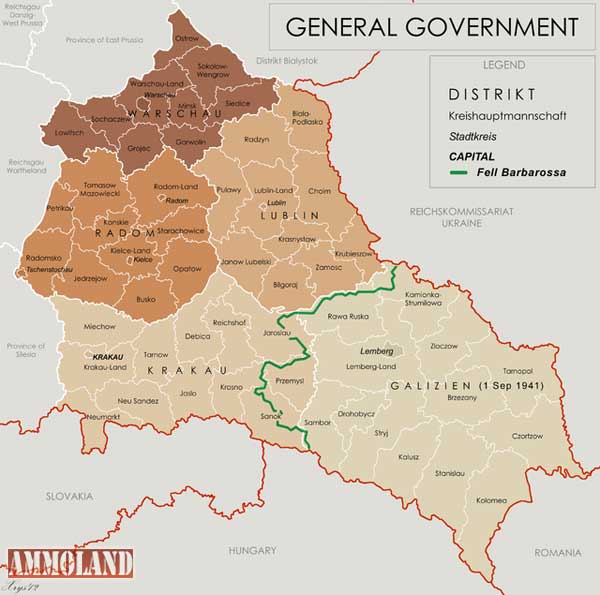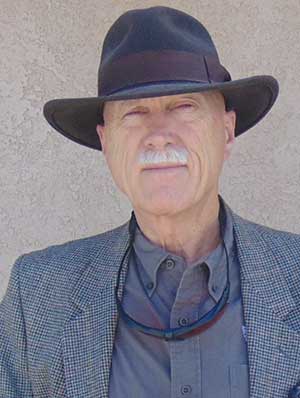By Dean Weingarten


Arizona – -(Ammoland.com)- This story is purely anecdotal. It was told to me by the principle participant about his actions during WWII when he was a teenager/young man in NAZI occupied Poland.
I believed him when he told it to me; I still believe him. I doubt that he will write a biography, so I will relate the events here so that they may be preserved.
I met the old soldier while I was working for the U.S. Army in Panama. It was 1986, just before Christmas. Another friend had brought him over for dinner, and I was enthralled with his personal accounts from WWII. He was an accomplished linguist and knew several languages – English, German, Russian, French, Spanish, probably Korean as well. He credited his mastery of more than one German dialect with his ability to survive WWII. He said that he had been commissioned as a lieutenant in the Polish resistance forces when he was 16.
He had seen the war coming; as preparation, he had studied and mastered at least two German dialects. Early in the war, he was captured and sent to a German labor camp. He was born into the Polish aristocracy, and, perhaps because of his fluent German, the camp commander sent for him one day. I am not certain if the commander had some small chore for him to do; but the commander said that he had heard that the Polish aristocracy had a reputation for keeping their word, and the commander wished to test that reputation.
He proposed this test: I will give you a pass to go back to your home and visit your family; you will give me your word that you will return as required on the pass. Maybe he had to deliver a message. My memory fails on that point.
The old soldier had gladly accepted the challenge as a teenager. It was early in the war. He took the pass (as I recall for a few days), and upon arriving at his home contacted the best forger that he could find, who made him a duplicate pass for a future date. When he returned to the camp he hid the duplicate pass. A couple of weeks later, he escaped on the duplicate and returned to his home.
He said that there was a factory in the town that made the “Army .45“. I presumed that the meant the Polish Radom pistol, which is a Browning derived pistol made in Poland before and during WWII. They are well thought of, but most were made in 9mm, with only a few in .45 and .22. Our young resistance fighter said that now that he was on the run, he needed a pistol and he needed documents.

He entered the factory and went along the line, picking up a part at every station. After he left the factory, he assembled the pistol. This part of his story is partly verified in this article about the Radom VIS. As the story was told to me in 1986, when the Internet was just a collection of email addresses, (I had a connection for my work at the Tropical Test Center) I consider this Internet source to offer some validation. Quite a number of these pistols were used in the uprising of the Jewish Warsaw Ghetto.
He went to the local collaborator who worked with the Germans. He showed him the pistol and told him that he needed identification documents. Only a German officer could authorize the documents, so he told the collaborator to tell the officer that he was a cousin from the country who needed to be documented so that he could find work. He told the collaborator that if anything went wrong, the pistol would be used on the collaborator first.
They went to the German officer and the collaborator tried to tell the story, but his German was not nearly as good as that of the young resistance fighter. He told the officer the story, in the native dialect of the officer. The officer signed the request for the identification, then told the collaborator: “You ought to consider your cousin as an example. He really knows how to speak German!”
He managed to survive the war and joined the U.S. Army afterward. When I met him, he had been retired for a number of years. In his early 60’s, he was lean and sharp.
c2014 by Dean Weingarten: Permission to share is granted when this notice is included. Link to Gun Watch
About Dean Weingarten;
Dean Weingarten has been a peace officer, a military officer, was on the University of Wisconsin Pistol Team for four years, and was first certified to teach firearms safety in 1973. He taught the Arizona concealed carry course for fifteen years until the goal of constitutional carry was attained. He has degrees in meteorology and mining engineering, and recently retired from the Department of Defense after a 30 year career in Army Research, Development, Testing, and Evaluation.
